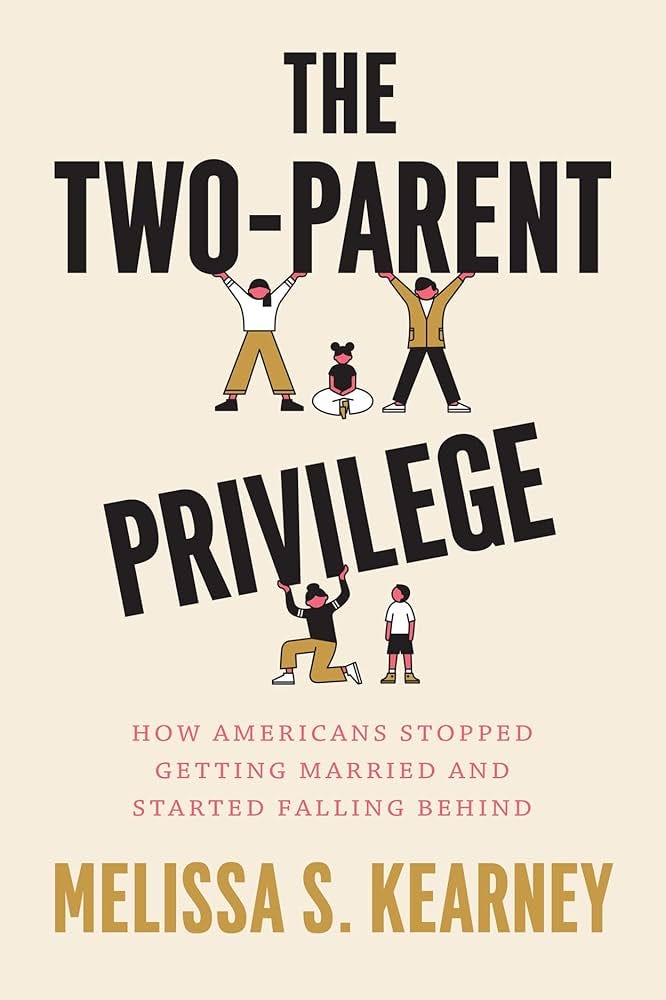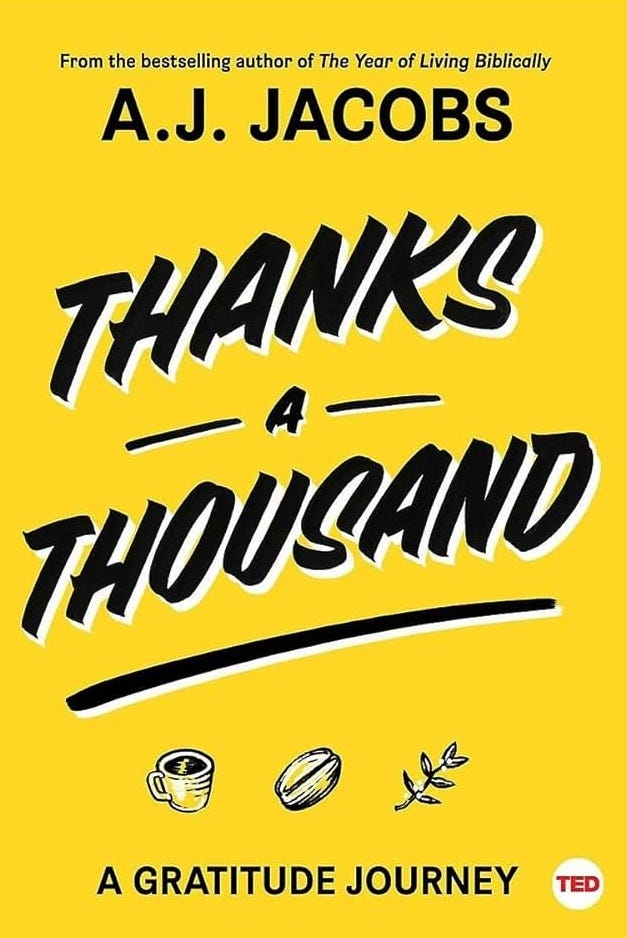My Favorite Books of 2024
These are a few of the best books I read this year.
You are reading Monday Morning Economist, a free weekly newsletter that explores the economics behind pop culture and current events. This newsletter lands in the inbox of thousands of subscribers every week! You can support this newsletter by sharing this free post or becoming a paid subscriber:
I love reading, especially books related to economics. I have a soft spot for books that focus on the intersection of history, politics, and economics, though I don’t shy away from a good fiction book either. The way I mix genres helps me explore a variety of different topics, which has also helped me explore different topics as I write this newsletter.
It’s okay if nonfiction isn’t your favorite genre! I really enjoyed reading James by Percival Everett and That’s Not My Name by Megan Lally this year. These were two pieces of fiction that kept me turning pages long after I should have gone to bed for the night. But before we look at some of my favorite nonfiction books of the year, what were your memorable reads? Drop them in the comments—I’m always looking for books to add to my 2025 list!
Since 2016, my New Year’s tradition has been to set a personal reading goal of 52 books for the year. I met that goal for several years initially, but I’ve come up short the past couple of years. Last year I was only able to read 40 books, but I read even fewer this year. I’m sure it’s a familiar story for many of us: day-to-day demands gradually chip away at the free time we thought we had. But I’m planning a comeback! I’m going to be more deliberate about setting time aside to read in 2025 and implement some of the other basic economic principles to maximize reading efficiency.
And now it’s time to share the five nonfiction books that stuck with me over the past year. For the sake of being transparent, none of these were actually published in 2024. The first three were published at the end of 2023, so I still consider them new books. The last two are a few years older, but I just got around to reading them this year. Regardless of when they were published, I found their connections to economics memorable and worth your consideration if you need some new books to read in the coming year. Let’s get started!
1) Ice by Amy Brady
In Ice, Amy Brady guides us through the chilling history of America’s ice industry. But it was more than just a retelling of historical anecdotes. Brady investigates how the commercialization of ice led to significant economic changes. Her blend of cultural analysis and economic insight made the book incredibly enlightening.
I particularly enjoyed the way she highlighted key economic events, like the ice famines in New York City and the monopolistic rise of the American Ice Company. She also discussed the shift from traditional ice delivery to the adoption of the modern refrigerator, a great example of creative destruction.
Perhaps my favorite part of the book was Brady’s discussion on the historical debates over natural and artificial ice. It reminded me of our modern debates on food authenticity and environmental sustainability. Overall, I found Ice to be an incredibly engaging look at how historical developments in a seemingly simple commodity like ice have profound implications for our understanding of technology and economics. Even though she presented these stories as historical events, they illustrated classic economic concepts in a uniquely approachable way.
2) Democracy Awakening by Heather Cox Richardson
Historian Heather Cox Richardson examines America’s political history and its ongoing challenges with democracy in Democracy Awakening. She explores the intersection of politics and economics from the nation’s founding through to the present day. She also writes a daily newsletter called Letters from an American.
Her observations start with the 2019 impeachment crisis and then take us back to defining historical events during the Civil War and the Great Depression. We also revisit more recent occurrences like the George Floyd protests and the COVID-19 pandemic. While the book focuses on our historical fight against authoritarianism, I couldn’t help but constantly see the importance of economic stability as a driver of democracy. It’s often when people believe they have lost economic power that they turn to authoritarian rules.
To be clear, her focus is one of political commentary. For those who like economic history, I think you’ll find that her work underscores the role economic narratives play in shaping American democracy. Leaders have always leveraged economic promises and fears to sway public opinion, and that sometimes fosteries authoritarian inclinations. Democracy Awakens is an important read for anyone looking to understand the historical forces that have molded American political and economic landscapes.
3) The Two-Parent Privilege by Melissa Kearney
The Two-Parent Privilege by economist Melissa Kearney offers an in-depth look at the economic implications of family structures, particularly the benefits that two-parent households provide for children. She takes a rigorous data-driven approach that highlights how family composition significantly affects economic stability and children’s outcomes.
Kearney has dedicated over a decade to this research topic and provides nuanced insights into how different family dynamics impact children’s behavior and success. Her past work includes several interesting studies, including one that looks at the effects of MTV’s 16 and Pregnant on teen pregnancy rates. It’s a study that I talk about in my principles class to demonstrate some of the interesting topics economics allows you to study.
There has been a modern shift away from traditional family structures and Kearney is careful to steer clear of suggesting a simple return to older family models as a fix-all solution. She offers a deep understanding of the intersection between economics and family dynamics, and her proposals focus on policy changes to support more than just single parents. Though the academic tone of The Two-Parent Privilege may be challenging for some, Kearney was able to connect economic theories to real-world family issues.
4) The Year That Broke America by Andrew Rice
Andrew Rice’s The Year That Broke America examines the pivotal events of the year 2000, a time in recent American history that reshaped our cultural and political landscapes. His extensive journalistic experience allows him to connect a range of events from the Bush-Gore election and the launch of Survivor to Donald Trump’s first presidential campaign and the international drama surrounding Elian Gonzalez. Those of you of a certain age will remember those events, but may not remember that they all happened in the same year.
While not primarily focused on economics, Rice integrates an economic perspective when discussing media influence, political financing, and the early signs of financial deregulation. The book is a bit longer at 544 pages but I found it really engaging to look back at a country on the verge of significant changes. Essentially, Rice invites readers to reflect on how a current version of America might handle similar crises.
5) Thanks A Thousand by A.J. Jacobs
Thanks A Thousand by A.J. Jacobs is a thought-provoking look at the global economy’s interconnectedness and the power of gratitude. Jacobs embarks on a mission to thank every individual involved in producing his morning coffee—from the barista to the coffee bean farmers and even the designers of the cups and lids. His journey highlights the complex web of human cooperation and economic interdependence.
The book is intended to deliver a powerful message about the often-overlooked labor that supports our daily lives. Jacobs uses his adventure as a real-world application of the “I, Pencil” essay’s concept of spontaneous order in market systems. No single person knows how to make a pencil—or a cup of coffee—on their own.
Jacobs’s story was intended to advocate for mindfulness and gratitude. if we can all start recognizing the contributions of countless individuals to our daily routines, perhaps we can enhance our own appreciation of others. It was a fun read to round out the year and I would recommend it to anyone looking for a gentle reminder of how connected we all are. If you want the 15-minute version of the story, you can always watch his Ted Talk from a few years ago:










Thanks for this list. Your recommendations are always new to me. The only one that I already had on my list was the two parent privilege . I’ll check out the others.